Jumping targets cellulite’s root causes while lotions only mask symptoms temporarily. When you bounce, you activate lymphatic drainage, improve circulation, and stimulate collagen production—all addressing cellulite’s underlying structures. Unlike creams that require daily application with minimal results, rebounding for just 10-15 minutes daily creates lasting internal changes. Plus, jumping costs less long-term than premium creams and offers additional health benefits. Discover why this whole-body approach delivers more visible, sustainable results than surface treatments.
The Science Behind Cellulite Formation
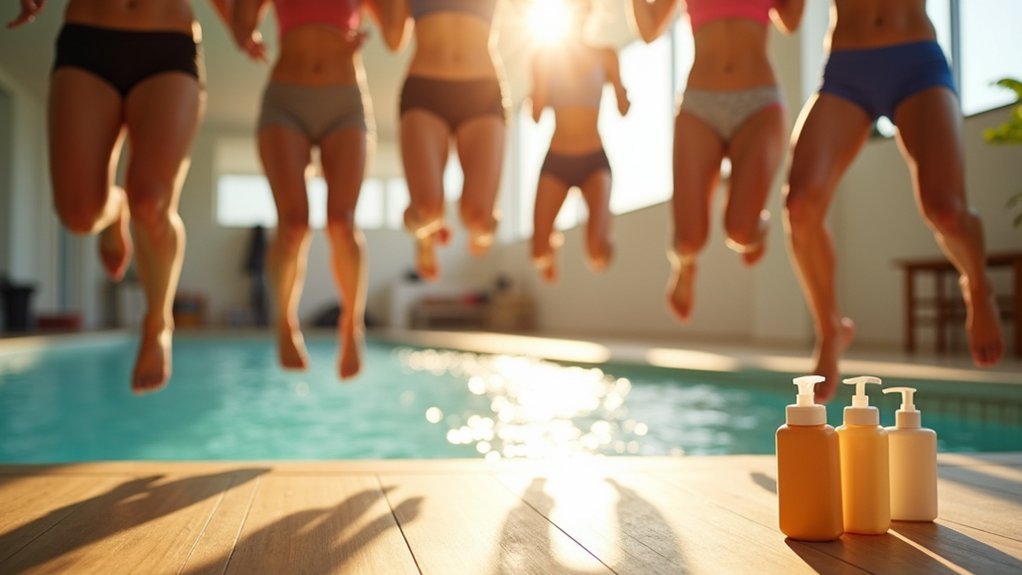
While many people consider cellulite merely a cosmetic issue, it’s actually a complex biological phenomenon with multiple underlying causes. Your body’s unique anatomy plays an essential role—tough connective cords pull down on your skin while fat cells push upward, creating that characteristic dimpled appearance.
You’re more likely to develop cellulite if you’re female, as women’s skin structure differs from men’s. Your hormones, particularly estrogen, greatly influence cellulite formation, which explains why it often appears during puberty or pregnancy.
Women’s unique skin structure and estrogen levels make them more susceptible to cellulite, especially during hormonal shifts.
Genetics also determine your susceptibility, affecting skin thickness and fat distribution. As you age, collagen degradation and decreased skin elasticity make cellulite more visible.
Your lifestyle choices, including diet and exercise habits, can either exacerbate or minimize its appearance.
How Lotions Target Cellulite (And Their Limitations)
In your search for smoother skin, you’ve likely encountered anti-cellulite lotions promising remarkable results. These products often contain ingredients like caffeine, retinol, and herbal extracts designed to improve circulation and tighten skin.
Clinical trials show active lotions outperform placebos, with improvements in up to 81% of users.
However, before investing in these treatments, consider their limitations:
- Short-term effects – Results typically fade without continuous application
- Surface-level action – Lotions can’t penetrate deeply enough to address underlying fat deposits
- Modest improvement – While skin texture may improve, changes are usually subtle
- Cost concerns – Long-term use becomes expensive for maintenance
Products containing caffeine may temporarily reduce cellulite appearance by dehydrating cells, but require daily application to maintain results.
For more significant results, you’ll need to combine lotions with other approaches—like jumping exercises.
Jumping as a Circulatory Booster for Skin Health

Jumping workouts dramatically increase your skin’s blood flow, delivering essential oxygen and nutrients while flushing away waste products that contribute to cellulite.
This enhanced circulation activates your lymphatic system, reducing fluid retention and toxin buildup beneath the skin’s surface.
The rhythmic impact of jumping also stimulates collagen production, strengthening your skin’s structural matrix for a firmer, smoother appearance.
Blood Flow Benefits
Beneath the surface of our skin, a remarkable transformation occurs when we engage in rebounding activities that boost circulation.
When you jump, your body’s circulatory system kicks into high gear, delivering oxygen-rich blood to every skin cell.
Unlike lotions that work temporarily on the surface, jumping creates lasting changes from within:
- Fresh oxygen delivery – Each bounce sends nutrients to your skin’s layers, promoting natural healing
- Reduced inflammation – Better circulation means less inflammatory buildup that contributes to cellulite appearance
- Enhanced collagen production – Improved blood flow supports the structural proteins that keep skin firm
- Faster toxin removal – Energized circulation helps flush waste products that can contribute to dimpled skin
This internal approach addresses cellulite at its source rather than just masking symptoms. Rebounding effectively lowers blood pressure while stimulating overall cardiovascular health in ways topical treatments simply cannot achieve.
Lymphatic System Activation
While your circulatory system relies on your heart as its pump, your lymphatic system depends entirely on physical movement to function properly.
Without regular activity, lymph flow can decrease by up to 94%, leading to toxin buildup and potentially worsening cellulite.
Rebounding offers a powerful solution. When you jump on a mini-trampoline, you create the perfect conditions for lymphatic drainage.
The alternating compression and release activate lymphatic valves, flushing out stagnant fluids and toxins trapped beneath your skin.
Unlike topical lotions that only address surface symptoms, rebounding tackles the root cause of cellulite by enhancing your body’s natural detoxification processes.
Even short, regular rebounding sessions can dramatically improve lymphatic circulation while being gentler on your joints than traditional high-impact exercises. This makes rebounding an ideal exercise option for individuals with joint conditions like arthritis, who still want effective lymphatic stimulation without the pain associated with high-impact workouts.
Collagen Production Boost
Collagen, your skin’s natural scaffolding, benefits tremendously from the circulatory boost that rebounding provides. When you jump, you’re activating fibroblasts, the specialized cells responsible for producing collagen.
This mechanical stimulation, combined with increased blood flow, creates ideal conditions for skin renewal and cellulite reduction.
Unlike topical treatments that only affect surface layers, rebounding works from within by:
- Decreasing cortisol levels that would otherwise break down collagen
- Enhancing oxygen delivery to skin tissues, preventing collagen degradation
- Creating compression-release cycles that stimulate collagen remodeling
- Increasing nutrient transport to deeper skin layers where cellulite forms
This internal approach addresses the root causes of cellulite while simultaneously strengthening the connective tissue network that keeps your skin firm and smooth. The up-and-down movements during rebounding are especially effective at maximizing lymphatic flow, which helps eliminate the toxins contributing to cellulite formation.
Results Timeline: Rebounding vs. Topical Solutions
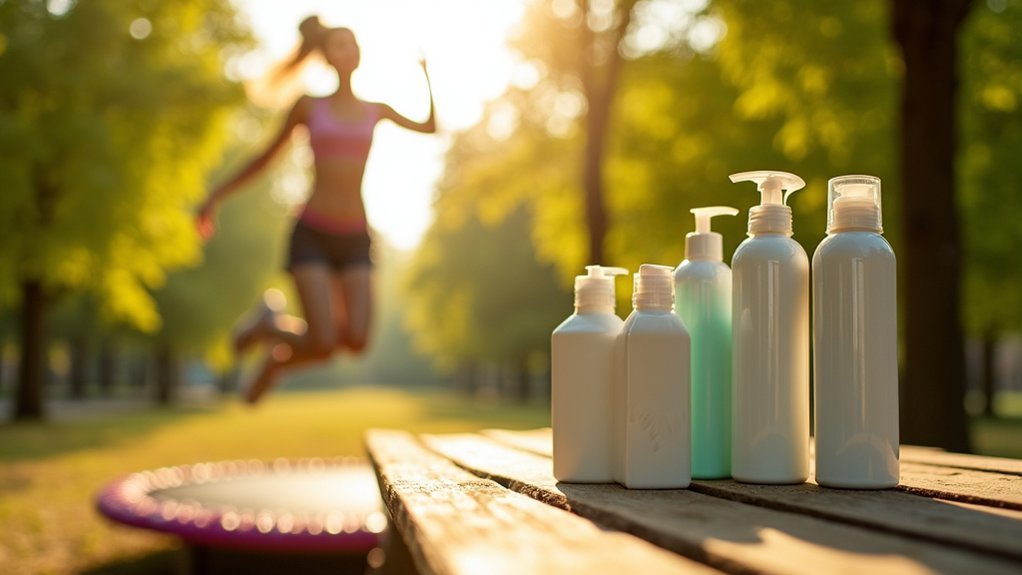
When will you actually see results from your anti-cellulite efforts? Unlike topical solutions that often deliver minimal outcomes after months of application, rebounding produces noticeable changes within weeks. The difference lies in rebounding’s full-body approach versus creams’ surface-level treatment. Rebounding offers improved lymphatic drainage that actively moves toxins out of your system, addressing a key contributor to cellulite formation.
| Timeline | Rebounding | Topical Solutions |
|---|---|---|
| 4 Weeks | Visible cellulite reduction, improved circulation | Minimal change, temporary skin smoothing |
| 12 Weeks | Significant weight loss, enhanced muscle tone | Slight improvement if used daily |
| 6 Months | Transformed body composition, reduced fat | Minor results, often disappointing |
| Long-term | Sustained results with continued practice | Results fade quickly when discontinued |
You’ll experience immediate physical feedback from rebounding—increased energy and circulation—while gaining systemic benefits that address cellulite’s root causes rather than merely masking symptoms.
Cost Analysis: Exercise Equipment vs. Premium Creams
Many consumers overlook the stark financial difference between investing in exercise equipment and purchasing premium anti-cellulite creams.
While equipment requires a higher upfront cost ($50-$700), it’s fundamentally a one-time purchase that delivers value for years, costing just pennies per use over time.
Creams demand an ongoing financial commitment that adds up dramatically:
- Initial outlay – Premium creams ($10-$100 per tube) often require complementary products, increasing startup costs.
- Recurring expense – Monthly replenishment ($30-$200) continues indefinitely.
- Multiple treatment areas – Costs multiply for each body zone treated.
- Limited shelf life – Products expire after 12 months, regardless of use.
Equipment like rebounders works your entire body simultaneously while eliminating monthly gym fees, making it considerably more cost-effective long-term.
The Role of Lymphatic Drainage in Cellulite Reduction
The lymphatic system plays a pivotal role in cellulite reduction, functioning as your body’s natural detoxification highway. When this system stagnates, fluids and toxins accumulate in your tissues, worsening cellulite’s dimpled appearance.
Jumping activities stimulate lymphatic flow through muscle contractions and gravitational changes. This natural pumping action helps clear metabolic waste from tissues where cellulite forms. Unlike creams that work superficially, rebounding addresses a root cause of cellulite – poor lymphatic drainage. Similar to professional treatments, rebounding uses light pressure techniques to encourage lymph movement from swollen tissues.
Rebounding creates a natural detox effect, flushing away waste from cellulite-prone areas where creams simply can’t reach.
Clinical evidence shows that improved lymphatic function reduces leg perimetry and visibly smooths skin texture. For best results, complement your rebounding routine with proper hydration and anti-inflammatory foods.
The beauty of this approach? You’re tackling cellulite while strengthening your immune system and improving overall tissue health.
Real-World Success Stories: Rebounding Transformations
You’ll find compelling evidence of rebounding’s effectiveness in the numerous before-and-after transformations shared across social media platforms.
Women who struggled with stubborn cellulite for years have documented significant improvements after just 8-12 weeks of consistent rebounding practice.
Even professional athletes report that adding rebounding to their training regimens has smoothed previously dimpled areas while simultaneously enhancing their performance.
Many users have experienced remarkable weight loss results, with some reporting drops of 6-9kg within just 4 weeks of regular rebounding sessions.
Before-After Rebounding Results
Remarkable transformations emerge when examining real-world rebounding results, with consistent users reporting visible cellulite reduction in as little as 10 days.
Your body responds quickly to this unique form of exercise that simultaneously activates lymphatic drainage and boosts circulation to affected areas.
The documented timeline shows why so many are trading lotions for trampolines:
- 10 days: Initial cellulite softening becomes visible as circulation improves
- 12-20 weeks: Significant weight loss and fat redistribution occurs with regular 30-60 minute sessions
- 3-5 sessions weekly: Ideal frequency for sustainable results
- Immediate post-workout glow: Enhanced oxygen delivery to skin layers creates visible liveliness
Your commitment to rebounding delivers both immediate circulatory benefits and long-term structural improvements that topical treatments simply can’t match.
Athletes’ Cellulite Transformation Stories
Many elite athletes who committed to rebounding have experienced dramatic changes in their cellulite patterns, challenging the myth that high-performance bodies don’t face this common skin condition.
Dorothy Beal and Ilona Maher—both high-level competitors—have shared their journeys embracing natural skin texture while discovering rebounding’s benefits for lymphatic drainage and circulation.
| Athlete | Transformation Experience |
|---|---|
| Trail Runners | Reported reduced thigh dimpling after 8 weeks of consistent rebounding |
| Weightlifters | Found rebounding complemented strength training, improving skin elasticity |
| Swimmers | Noticed enhanced recovery and reduced fluid retention with rebounding |
| Marathon Runners | Used compression gear plus rebounding to counteract blood pooling |
| Rugby Players | Combined rebounding with myofascial release for improved results |
Unlike high-impact sports that may worsen cellulite through prolonged standing and blood pooling, rebounding’s gentle vertical motion supports your body’s natural detoxification processes.
Combining Approaches for Maximum Results
When battling cellulite, combining multiple treatment approaches often delivers greatly better results than relying on a single method.
Research shows that integrated therapies target different aspects of cellulite simultaneously—addressing fat breakdown, collagen synthesis, and skin tightening for enhanced outcomes.
Integrated therapies attack cellulite from multiple angles—dissolving fat, building collagen, and firming skin for superior results.
Your most effective cellulite-fighting strategy might include:
- Jumping exercises combined with targeted massage techniques
- Professional treatments like radiofrequency paired with home-based routines
- Enzymatic therapies integrated with lifestyle modifications
- High-intensity focused electromagnetic therapy alongside proper nutrition
Studies report up to 94% satisfaction rates with combined approaches, with patients noticing significant improvements in skin texture and muscle definition.
Your dermatologist can help assess which combination will work best for your specific cellulite type and severity, ensuring you’ll achieve maximum, long-lasting results rather than temporary improvements.
Why Most Cellulite Creams Fall Short of Promises
While combining approaches yields impressive results, the truth about most cellulite creams presents a stark contrast.
You’re likely to experience only temporary improvements despite consistent application, as most creams simply can’t penetrate deeply enough to address underlying causes.
Clinical evidence reveals disappointing realities: small-scale studies with variable success rates and limited follow-up periods fail to demonstrate lasting benefits.
What you’re seeing in advertisements rarely aligns with scientifically proven outcomes. Most active ingredients lack robust clinical backing, and effectiveness varies dramatically between individuals.
Your satisfaction depends largely on managing expectations.
The market is filled with exaggerated claims that aren’t strictly regulated, creating confusion when your results don’t match the promises.
This gap between marketing hype and actual performance explains why so many users feel disappointed after investing in these products.
Rebounding’s Impact on Collagen Production
Rebounding’s ability to boost collagen production sets it apart from topical treatments in the battle against cellulite.
When you bounce on a mini-trampoline, you’re stimulating collagen synthesis through mechanical stress on connective tissues while simultaneously reducing cortisol levels that break down existing collagen.
Your body responds to rebounding in four powerful ways:
- Fascia strengthening – The vertical motion tightens collagen networks, reducing skin sagging
- Cortisol reduction – Lower stress hormones allow ideal collagen production
- Lymphatic drainage – Removes toxins that compromise skin structure
- Circulatory boost – Delivers essential nutrients for collagen synthesis directly to skin cells
Just 10-15 minutes daily provides cumulative benefits that topical products simply can’t match.
Addressing Hormonal Factors Through Exercise
Your rebounding routine directly impacts hormone levels that contribute to cellulite formation, particularly estrogen which affects fat distribution in your thighs and buttocks.
Regular jumping exercises help stabilize hormonal fluctuations by reducing stress hormones like cortisol while simultaneously improving insulin sensitivity.
You’ll likely notice improved results when your workouts consistently address these hormonal imbalances, creating a more effective approach to cellulite reduction than focusing solely on fat loss.
Exercise Balances Hormones
Since hormonal imbalances often contribute to cellulite formation, regular physical activity offers a powerful natural solution.
When you jump regularly, your body creates a more balanced hormonal environment that fights cellulite at its source.
Your hormonal benefits from jumping include:
- Testosterone boost – Resistance from jumping increases testosterone production, supporting muscle development and improving metabolic efficiency.
- Cortisol regulation – The rhythmic nature of jumping helps normalize cortisol patterns, preventing stress-related fat accumulation.
- Dopamine elevation – Each jumping session releases dopamine, enhancing your motivation to maintain your anti-cellulite routine.
- Serotonin increase – Jumping boosts serotonin production, improving sleep quality which further supports hormonal balance.
These hormonal improvements work together to address cellulite more effectively than any topical treatment.
Estrogen-Related Benefits Explained
While estrogen plays an essential role in how your body stores and distributes fat, jumping exercises provide specific benefits for balancing this complex hormone. Research shows 12 weeks of anaerobic exercise greatly increases estradiol levels in postmenopausal women, counteracting age-related declines.
Unlike lotions that merely target surface layers, jumping workouts trigger systemic hormonal adaptations. The high-impact nature of these exercises enhances microcirculation and fibroblast activity, directly supporting collagen production in estrogen-dependent tissues.
You’ll also experience improved lymphatic drainage, reducing the water retention commonly associated with hormonal fluctuations.
For menopausal women especially, these plyometric movements offer remarkable benefits—strengthening the septal network between fat lobules while simultaneously upregulating estrogen receptor activity in subcutaneous tissues, effectively addressing cellulite at its hormonal source.
The Psychological Benefits of Action-Based Solutions
Beyond the physical impacts of cellulite management, action-based solutions deliver profound psychological benefits that transform how you perceive and address body concerns. When you jump, squat, or engage in targeted movements, you’re not just working on your body—you’re rewiring your psychological relationship with it.
- Enhanced control – Setting immediate goals mirrors solution-focused therapy, empowering you to take charge rather than passively waiting for lotions to work.
- Boosted self-efficacy – Each workout builds confidence through visible progress and micro-successes.
- Stress reduction – Physical activity interrupts negative thought loops while releasing mood-enhancing endorphins.
- Social reinforcement – Sharing your exercise journey creates accountability and reduces isolation through community support.
Unlike passive treatments, action-based solutions activate your agency, triggering dopamine release that reinforces your commitment to change.
Creating a Sustainable Anti-Cellulite Routine
The psychological benefits of action-based solutions gain lasting power when structured into a consistent, practical routine. Your anti-cellulite strategy needs thoughtful planning to become a sustainable lifestyle rather than another abandoned effort. Research recommends engaging in 150 minutes of moderate-intensity aerobic activity weekly for optimal results.
| Time of Day | Activity | Benefit |
|---|---|---|
| Morning | a15-min jump routine | Optimizes cortisol levels |
| Pre-lunch | Vitamin C-rich snack | Supports collagen synthesis |
| Afternoon | Hydration focus | Enhances toxin elimination |
| Evening | Resistance training | Builds underlying muscle |
| Before bed | Stretching/foam rolling | Improves overnight recovery |
Start with achievable 15-minute sessions three times weekly, gradually increasing duration and intensity. Unlike creams requiring constant repurchasing, exercise creates a self-sufficient routine needing minimal equipment. By integrating proper nutrition and respecting your body’s circadian rhythm, you’ll build a zero-waste approach that addresses cellulite at its structural root.
Frequently Asked Questions
Can Jumping Exercises Worsen Existing Joint Problems or Injuries?
Yes, jumping exercises can worsen your existing joint problems. They create high impact on knees and ankles, potentially aggravating osteoarthritis, stress fractures, or tendon injuries if you don’t use proper technique or have muscle imbalances.
Are There Specific Jumping Techniques More Effective for Cellulite Reduction?
Rebounding on mini-trampolines offers the best results for cellulite reduction. You’ll maximize benefits by incorporating multidirectional movements, adding rebound boots for intensity, and alternating with plyometric exercises like squat jumps and lateral bounds.
How Does Age Affect the Effectiveness of Jumping for Cellulite?
As you age, jumping is still effective for cellulite reduction, though skin elasticity decreases. You’ll gain more benefits by counteracting muscle loss, improving circulation, and balancing hormones that typically decline with aging.
Can Jumping Help With Cellulite During Pregnancy or Postpartum?
During pregnancy, stick to low-impact rebounding with medical clearance. Postpartum, wait 6+ weeks before jumping. You’ll see better results combining gentle cardio with strength training, hydration, and proper nutrition for cellulite reduction.
Does the Time of Day Impact the Effectiveness of Anti-Cellulite Exercises?
While there’s no conclusive evidence that time of day affects cellulite reduction, you’ll likely see better results by choosing when you’re most consistent. Morning workouts boost metabolism, while evening sessions may enhance recovery during sleep.
In Summary
While anti-cellulite lotions offer convenience, they can’t match jumping’s extensive benefits. You’re not just improving circulation and stimulating collagen production when you rebound—you’re addressing hormonal factors, saving money long-term, and boosting your confidence through action. Choose jumping as your sustainable solution, and you’ll experience both physical and mental transformation. Remember, consistency with rebounding delivers results that no cream can promise.
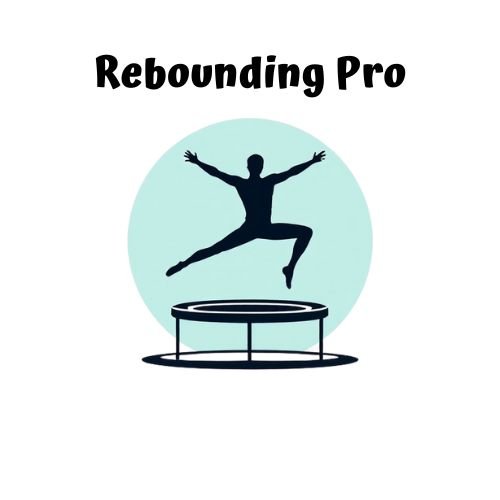


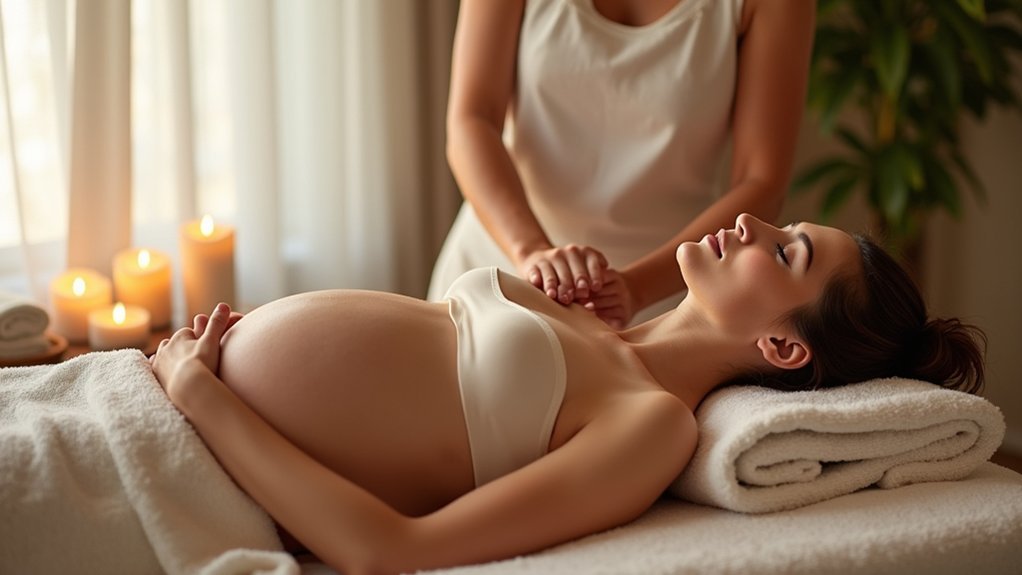
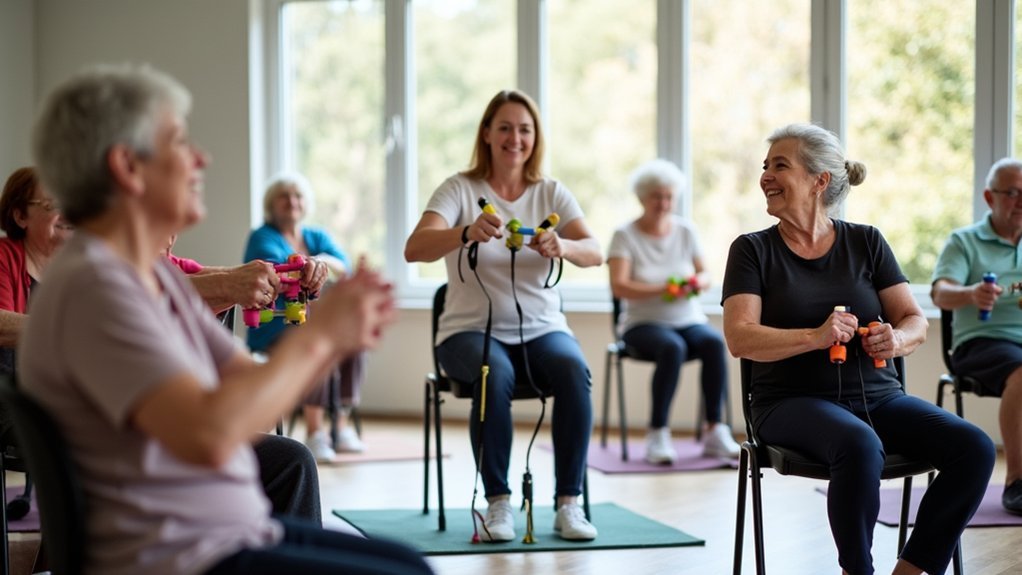
Leave a Reply